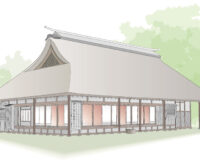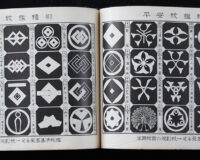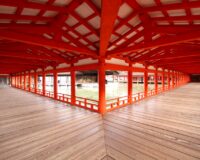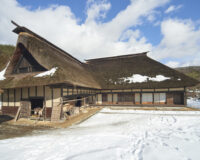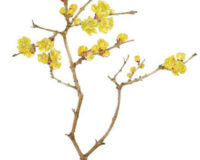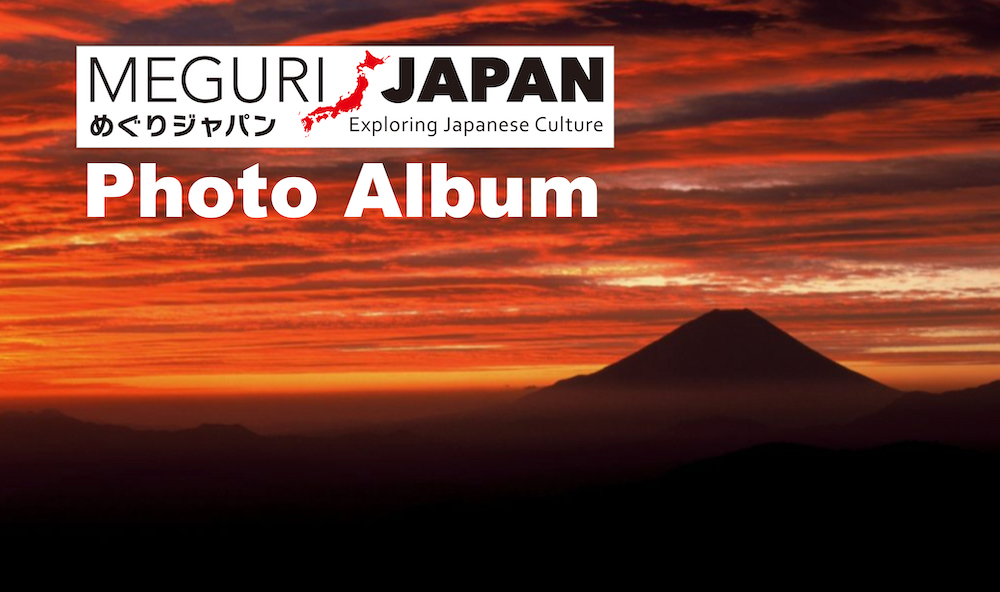
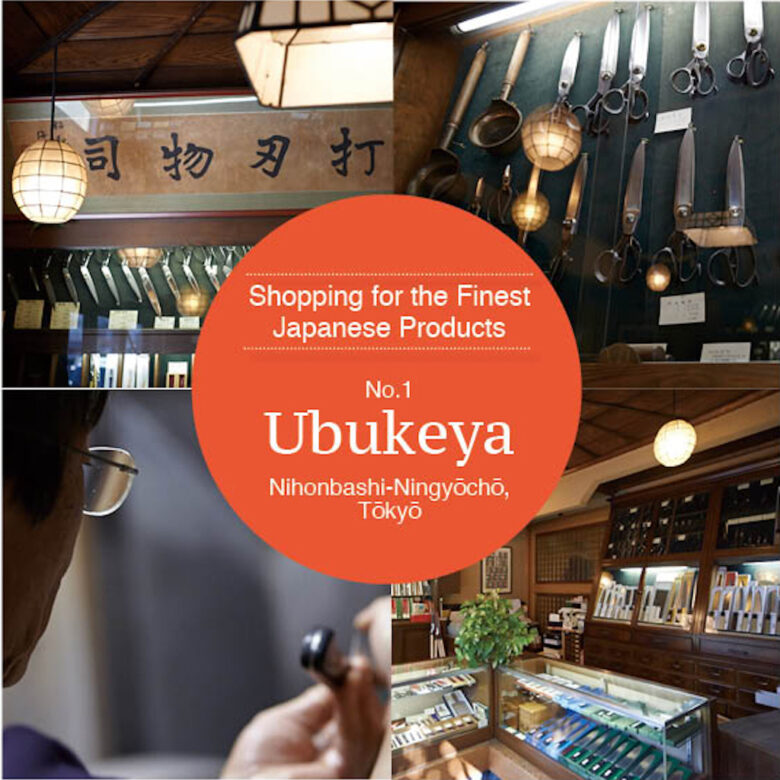
Text : 水口まり Mari Minakuchi / Photos : 菅原孝司 Koji Sugawara / English Version : Judy Evans
Keyword : Shopping / Shopping for the Finest Japanese Products Series / Ubukeya / Nihonbashi-Ningyocho / Japanese knives / knife shop / Tokyo
The functional beauty of finely-honed blades: a time-honoured craft tradition.
Located in the Nihonbashi-Ningyōchō district of Tokyo, Ubukeya knife shop is a traditional shoku-shōnin establishment that retains the values of a bygone era. The term, shoku-shōnin, refers to merchant craftsmen who, rather than buying their stock from wholesalers and simply selling it on to customers as conventional retailers do, buy in unfinished items from the makers and craft the finishing touches themselves, to suit the needs of their customers. They also repair and maintain items.
Japan had a flourishing culture of maintaining and mending household items during the Edo Period (1603 – 1868). Merchant craftsmen all over Japan were in the business of selling and servicing all sorts of products, ranging from umbrellas to paper lanterns, footwear and knives.
In Tokyo, venerable businesses that retain the atmosphere of that bygone era can still be found in the Nihonbashi-Ningyōchō district. Manabi-Japan visited the knife shop, Ubukeya, where the way of the merchant craftsman continues to flourish.
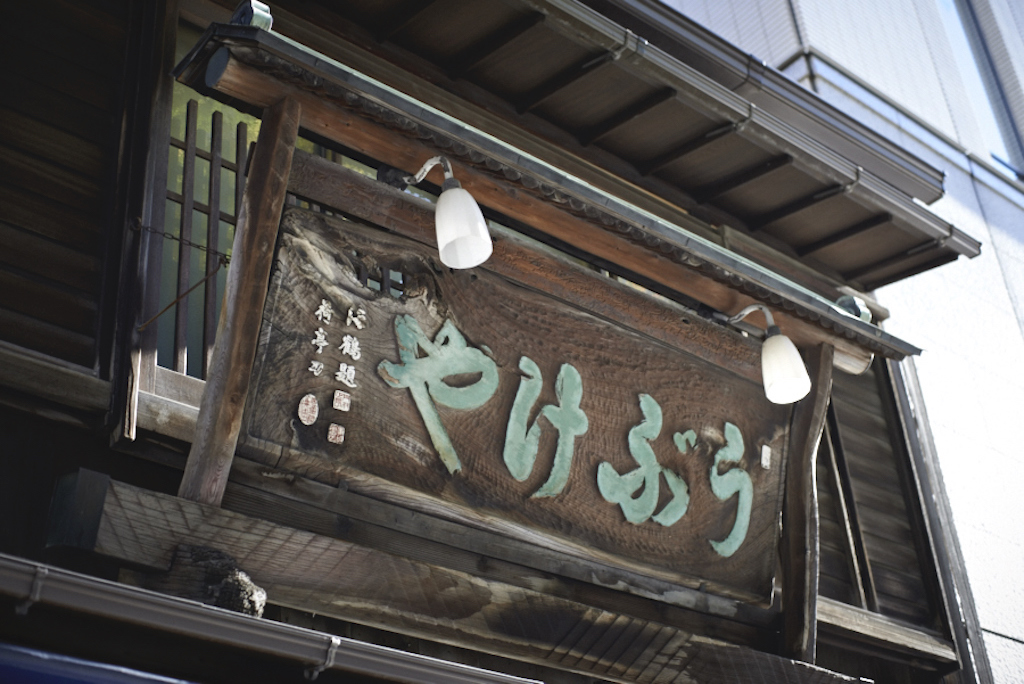
Established in 1783, Ubukeya specialises in all types of household blades, particularly knives, razors and scissors, as well as tweezers. Ubuke refers to downy ‘peach fuzz’ hair, and the name of the store is said to derive from a customer’s claim that the knives are sharp enough to shave even this fine, soft hair.
Each and every knife on display at Ubukeya (which stocks over three hundred products) has had its blade painstakingly shaped and sharpened by 8th generation head of the family Yutaka Yazaki and his son, Daiki. Unsharpened knives and other items are bought directly from the maker, and in a workshop at the back of the store, the two craftsmen finely hone these blades. This process, called honbazuke, includes careful inspection of each item.
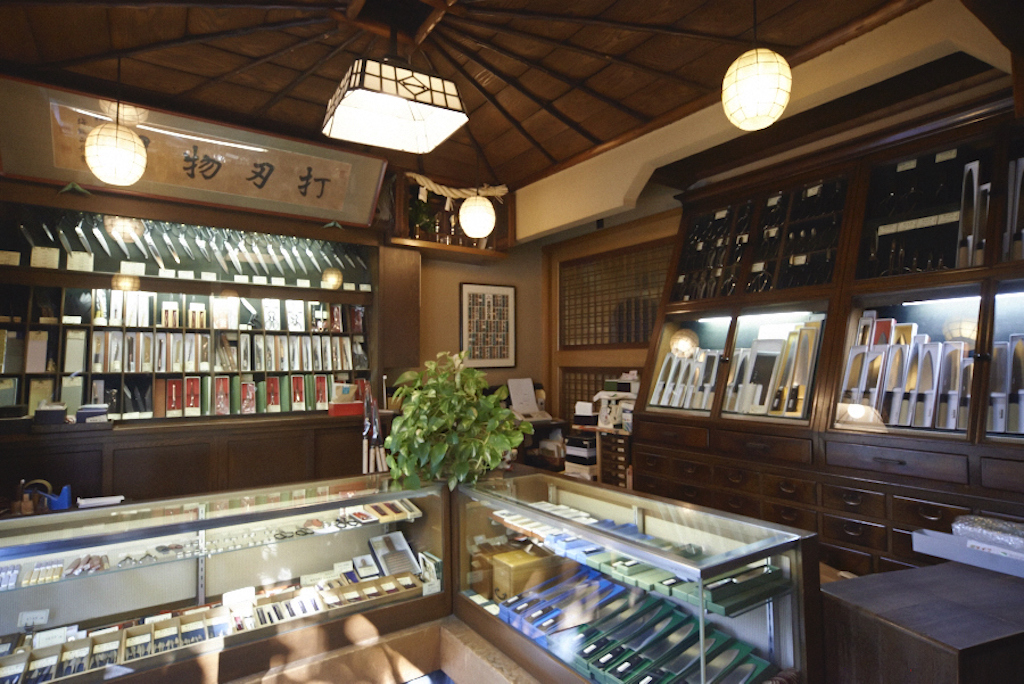
After initially forming the blade edge on a large grinding wheel, Yutaka checks for the slightest flaw. The blade of the splendid hamaguriba-style knife he has just been working on gleams in his hand. Hamaguriba refers to the way the flat of the blade is shaped. Rather than having any flat planes or angles, the sides of the blade are gently rounded from the spine down to the cutting edge. The name derives from the hamaguri (orient clam) and like the hamaguri shell, this blade is both functional and beautiful.
Shoku-shōnin also repair and maintain products for their customers. At Ubukeya they will sharpen not only knives purchased in-store, but also those purchased elsewhere. Yazaki san explains that by looking at the condition of the blade, he can quickly work out how best to sharpen the knife to suit the way the owner uses it. Even inexpensive knives, he says, can be sharpened so that they cut much more effectively.
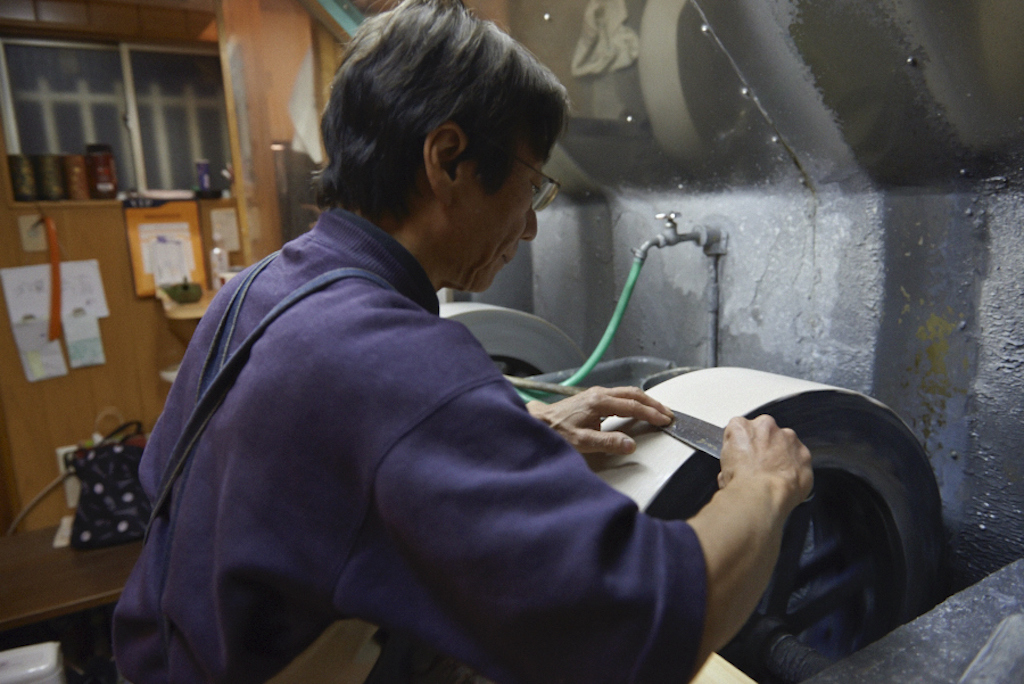
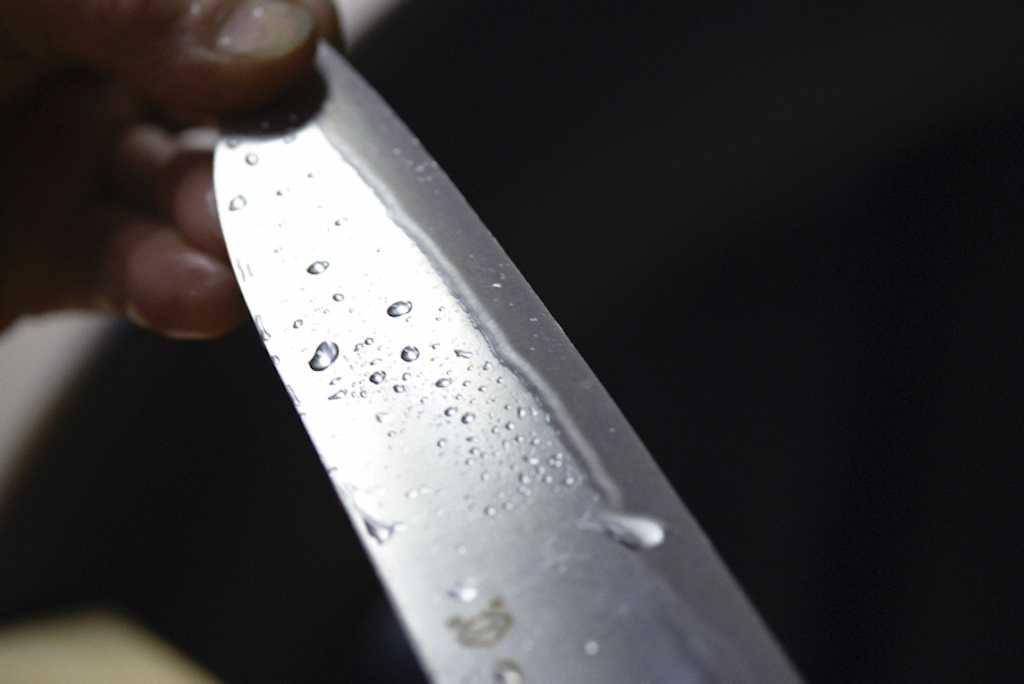
Yazaki san buys in the finest quality kitchen knives and cutting utensils from craftsmen he has dealt with for many years. Everything is hand finished in-store, to craft items that are high quality, user-friendly, and that the Yazakis can proudly sell as Ubukeya products. The traditional craftsmanship and subtle precision of the shoku-shōnin is alive and well at Ubukeya, as is their sense of humour. According to Yazaki san, the store motto, handed down through generations, is “The only things that aren’t sharp at Ubukeya are our tweezers and the way we treat our customers”!
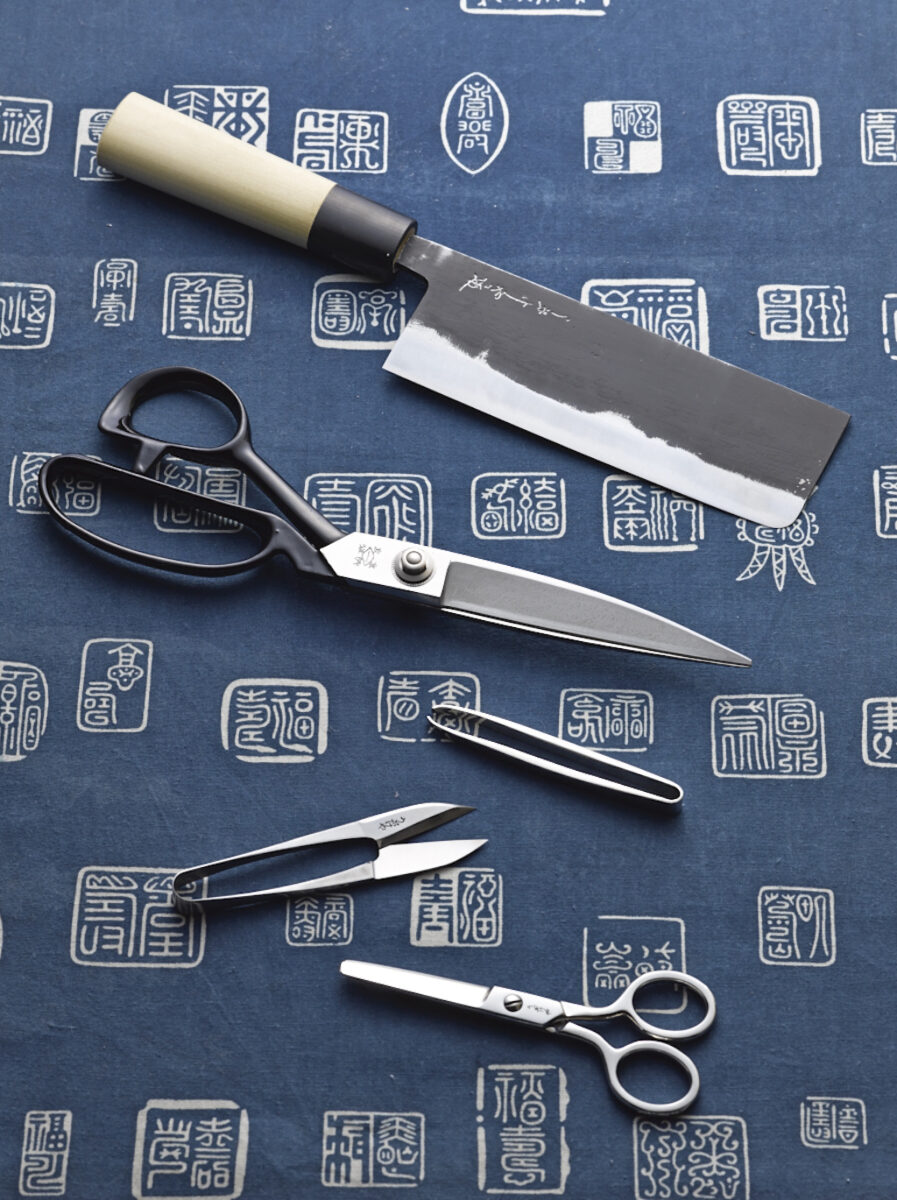
Ubukeya
Location: 3-9-2 Nihonbashi Ningyocho, Chuo, Tokyo
Tel: 03-3661-4851
Hours: 09.00 〜 18:00 (Mon〜Fri), 09.00 〜 17:00 (Sat)
Closed Sundays and public holidays
Nearest station: Ningyōchō Station on the Tōkyō Metro Hibiya Line and the Tōei Asakusa Line.

